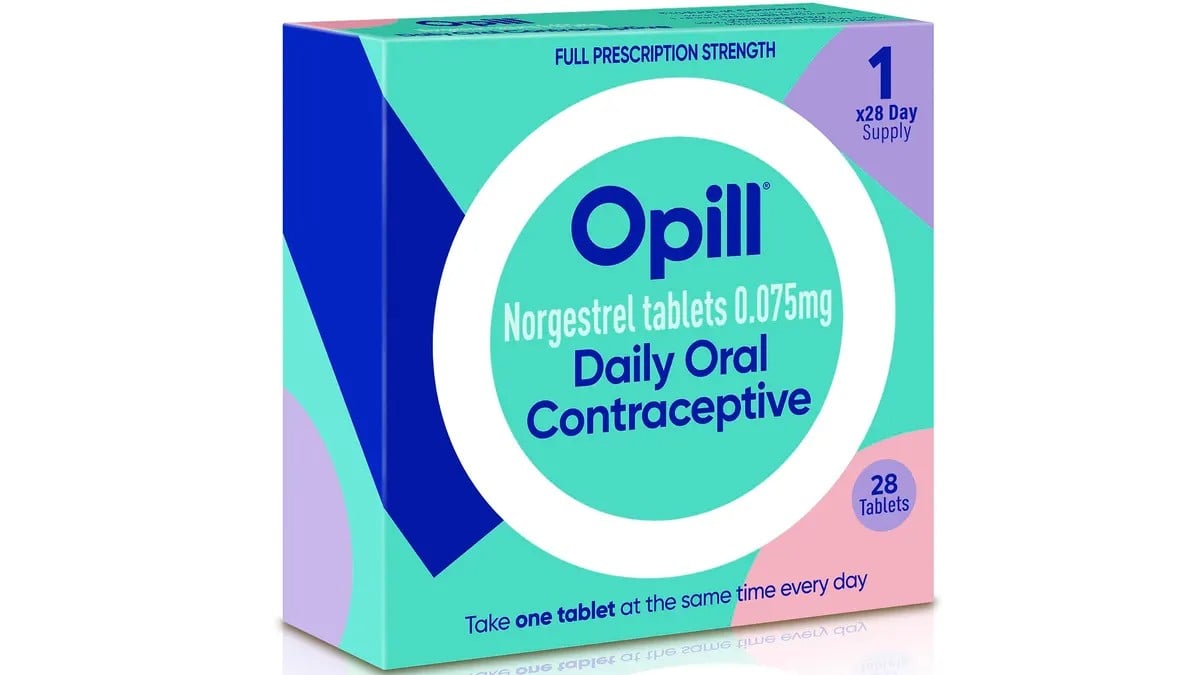Post-Roe America: How OTC Birth Control Reshapes Reproductive Healthcare

Table of Contents
Increased Access to Birth Control: Breaking Down Barriers to Reproductive Healthcare
One of the most significant impacts of making birth control available over-the-counter is the expansion of access for underserved populations. Previously, many individuals faced significant barriers to obtaining contraception, including: high costs, inconvenient clinic locations, lack of transportation, and restrictive clinic hours. These barriers disproportionately affect low-income individuals, those in rural areas, and young people. OTC birth control directly addresses these challenges.
Eliminating the need for doctor's visits and prescriptions is a game-changer. This significantly reduces the hurdles involved in obtaining contraception.
- Reduced reliance on healthcare providers: This is particularly important in areas with limited access to healthcare services, such as rural communities or underserved urban neighborhoods.
- Increased privacy and convenience: The ability to purchase birth control discreetly and conveniently can encourage more people to use it consistently.
- Improved adherence to birth control regimens: Easier access translates to better adherence, leading to more effective contraception and fewer unintended pregnancies.
- Improved access for young people: Young people often face significant obstacles in obtaining prescriptions, including parental consent issues and navigating the healthcare system independently. OTC access empowers them to take control of their reproductive health.
Cost-Effectiveness of OTC Birth Control: A Financial Boon for Reproductive Healthcare
The financial implications of OTC birth control are substantial. Prescription birth control can be expensive, with costs varying greatly depending on the type of contraception, insurance coverage, and individual circumstances. OTC options promise to significantly lower these costs.
- Reduced healthcare costs: Fewer doctor visits for prescriptions mean lower overall healthcare expenditures.
- Lower out-of-pocket expenses for individuals: This directly benefits individuals, particularly those with limited financial resources.
- Potential for increased affordability and decreased financial barriers: Wider availability and lower costs make birth control accessible to a broader range of people.
- Government subsidies and programs: Government initiatives could further reduce costs by providing subsidies or expanding existing programs to include OTC birth control.
Potential Drawbacks and Concerns Surrounding OTC Birth Control: Addressing Safety and Misinformation
While OTC birth control offers numerous advantages, potential drawbacks need careful consideration.
- Risk of inappropriate use or self-medication: The lack of direct medical supervision raises concerns about the potential for misuse or incorrect usage.
- Potential for increased rates of unintended pregnancies: Incorrect or inconsistent use of OTC birth control could lead to higher unintended pregnancy rates.
- The need for accurate information and education campaigns: Comprehensive public health campaigns are crucial to ensure people understand how to use OTC birth control correctly and safely.
- Concerns about potential for increased black market sales of counterfeit products: Strict regulation is necessary to prevent the sale of unsafe and ineffective counterfeit products.
- The importance of comprehensive sex education: Education on various contraceptive methods, their effectiveness, and potential side effects is essential for informed decision-making.
The Role of Government Regulation and Public Health Initiatives in Supporting OTC Birth Control Access
Government regulation and public health initiatives play a vital role in ensuring safe and effective access to OTC birth control.
- Clear labeling and instructions: Products must be clearly labeled with comprehensive instructions on usage, potential side effects, and contraindications.
- Investment in public awareness campaigns: Targeted public education campaigns can educate individuals about safe and effective use, dispel misinformation, and promote responsible choices.
- Addressing misinformation: Combating misinformation and promoting evidence-based information on contraception is essential for public health.
- Ensuring equitable access: Policies should ensure that OTC birth control is accessible to all populations, regardless of socioeconomic status, geographic location, or other factors.
The Future of Reproductive Healthcare in a Post-Roe America with Over-the-Counter Birth Control
The availability of OTC birth control presents a significant opportunity to reshape reproductive healthcare in Post-Roe America. While increased access and cost-effectiveness offer considerable benefits, careful consideration of potential drawbacks and the need for robust regulation and public health initiatives are crucial. Responsible usage, supported by comprehensive education and accessible information, is paramount.
Learn more about the availability of over-the-counter birth control options in your area and become an advocate for expanding access to comprehensive reproductive healthcare services. The future of reproductive healthcare in post-Roe America depends on our collective action to ensure everyone has access to the birth control they need.

Featured Posts
-
 La Fires Landlords Accused Of Price Gouging Amid Crisis
Apr 26, 2025
La Fires Landlords Accused Of Price Gouging Amid Crisis
Apr 26, 2025 -
 Should You Return To A Company That Laid You Off A Practical Guide
Apr 26, 2025
Should You Return To A Company That Laid You Off A Practical Guide
Apr 26, 2025 -
 Chinas Automotive Revolution Are Their Cars The Next Big Thing
Apr 26, 2025
Chinas Automotive Revolution Are Their Cars The Next Big Thing
Apr 26, 2025 -
 Escape Disney 7 Fresh Dining Experiences In Orlando For 2025
Apr 26, 2025
Escape Disney 7 Fresh Dining Experiences In Orlando For 2025
Apr 26, 2025 -
 Ahmed Hassaneins Improbable Journey On The Cusp Of Nfl History
Apr 26, 2025
Ahmed Hassaneins Improbable Journey On The Cusp Of Nfl History
Apr 26, 2025
